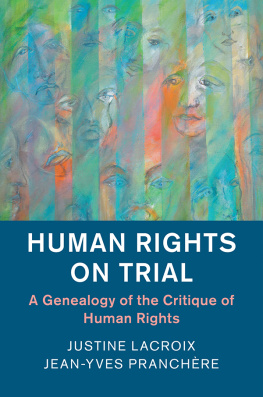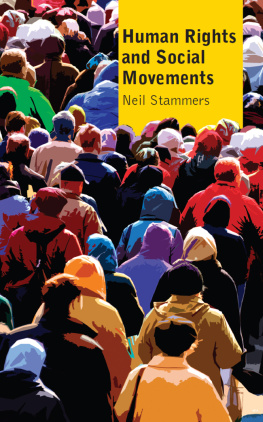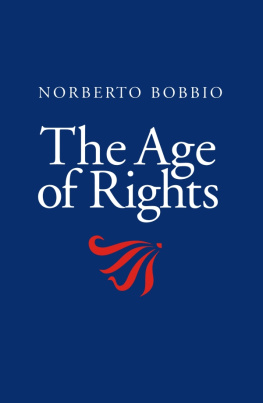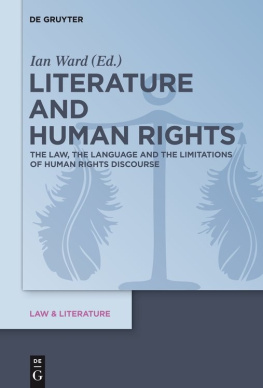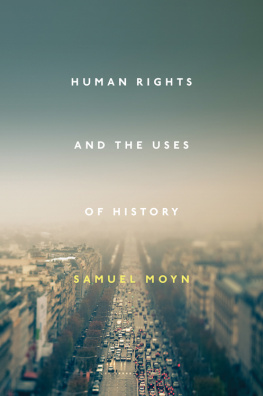Lacroix Justine - Human Rights in History: Human Rights on Trial
Here you can read online Lacroix Justine - Human Rights in History: Human Rights on Trial full text of the book (entire story) in english for free. Download pdf and epub, get meaning, cover and reviews about this ebook. year: 2018, publisher: Cambridge University Press, genre: Politics. Description of the work, (preface) as well as reviews are available. Best literature library LitArk.com created for fans of good reading and offers a wide selection of genres:
Romance novel
Science fiction
Adventure
Detective
Science
History
Home and family
Prose
Art
Politics
Computer
Non-fiction
Religion
Business
Children
Humor
Choose a favorite category and find really read worthwhile books. Enjoy immersion in the world of imagination, feel the emotions of the characters or learn something new for yourself, make an fascinating discovery.
- Book:Human Rights in History: Human Rights on Trial
- Author:
- Publisher:Cambridge University Press
- Genre:
- Year:2018
- Rating:4 / 5
- Favourites:Add to favourites
- Your mark:
- 80
- 1
- 2
- 3
- 4
- 5
Human Rights in History: Human Rights on Trial: summary, description and annotation
We offer to read an annotation, description, summary or preface (depends on what the author of the book "Human Rights in History: Human Rights on Trial" wrote himself). If you haven't found the necessary information about the book — write in the comments, we will try to find it.
Human Rights in History: Human Rights on Trial — read online for free the complete book (whole text) full work
Below is the text of the book, divided by pages. System saving the place of the last page read, allows you to conveniently read the book "Human Rights in History: Human Rights on Trial" online for free, without having to search again every time where you left off. Put a bookmark, and you can go to the page where you finished reading at any time.
Font size:
Interval:
Bookmark:

Human Rights on Trial
The first systematic analysis of the arguments made against human rights from the French Revolution to the present day. Through the writings of Edmund Burke, Jeremy Bentham, Auguste Comte, Louis de Bonald, Joseph de Maistre, Karl Marx, Carl Schmitt and Hannah Arendt, the authors explore the divergences and convergences between these classical arguments against human rights and the contemporary critiques made both in Anglo-American and French political philosophy. Human Rights on Trial is unique in its marriage of the history of ideas with normative theory, and its integration of BritishNorth American and continental debates on human rights. It offers a powerful rebuttal of the dominant belief in a sharp division between human rights today and the Rights of Man proclaimed at the end of the eighteenth century. It also offers a strong framework for a democratic defence of human rights.
Justine Lacroix is Professor of Politics at the Universit libre de Bruxelles, Belgium. She is Associate Editor of the European Journal of Political Theory .
Jean-Yves Pranchre is Professor of Political Theory at the Universit libre de Bruxelles, Belgium. He is Associate Editor of the European Journal of Social Sciences .
Stefan-Ludwig Hoffmann, University of California, Berkeley
Samuel Moyn, Yale University, Connecticut
This series showcases new scholarship exploring the backgrounds of human rights today. With an open-ended chronology and international perspective, the series seeks works attentive to the surprises and contingencies in the historical origins and legacies of human rights ideals and interventions. Books in the series will focus not only on the intellectual antecedents and foundations of human rights, but also on the incorporation of the concept by movements, nation-states, international governance, and transnational law.
A full list of titles in the series can be found at: www.cambridge.org/human-rights-history
Human Rights on Trial
A Genealogy of the Critique of Human Rights
Justine Lacroix
Universit libre de Bruxelles
Jean-Yves Pranchre
Universit libre de Bruxelles
Translated by Gabrielle Maas


University Printing House, Cambridge CB2 8BS, United Kingdom
One Liberty Plaza, 20th Floor, New York, NY 10006, USA
477 Williamstown Road, Port Melbourne, VIC 3207, Australia
314321, 3rd Floor, Plot 3, Splendor Forum, Jasola District Centre, New Delhi 110025, India
79 Anson Road, #0604/06, Singapore 079906
Cambridge University Press is part of the University of Cambridge.
It furthers the Universitys mission by disseminating knowledge in the pursuit of education, learning, and research at the highest international levels of excellence.
www.cambridge.org
Information on this title: www.cambridge.org/9781108424394
DOI: 10.1017/9781108334884
Originally published in 2016 by Editions du Seuill as Le Procs des droits de lhomme: Gnalogie du scepticisme dmocratique , written in the French language by Justine Lacroix and Jean-Yves Pranchre (ISBN 9782021181005)
Editions du Seuil 2016
First published in English by Cambridge University Press in 2018, translation by Gabrielle Maas.
Justine Lacroix and Jean-Yves Pranchre 2018
This publication is in copyright. Subject to statutory exception and to the provisions of relevant collective licensing agreements, no reproduction of any part may take place without the written permission of Cambridge University Press.
First published 2018
Printed in the United Kingdom by Clays, St Ives plc
A catalogue record for this publication is available from the British Library.
ISBN 978-1-108-42439-4 Hardback
ISBN 978-1-108-43815-5 Paperback
Cambridge University Press has no responsibility for the persistence or accuracy of URLs for external or third-party internet websites referred to in this publication and does not guarantee that any content on such websites is, or will remain, accurate or appropriate.
We gratefully acknowledge the support of the European Research Council, which funded this book with a Starting Grant entitled RESIST. Human Rights versus Democracy? Towards a Conceptual Genealogy of Skepticism about Human Rights in Contemporary Political Thought (20102016). The Centre de thorie politique (CTP) at the Universit libre de Bruxelles, our home institution, has provided us with an exceptionally inspiring and collegial working environment. The authors would like to thank all past and current CTP members, and in particular Christopher Hamel and Carlo Invernizzi-Accetti for their commitment to the RESIST project.
An earlier version of draws on arguments first explored in Justine Lacroix, The Right to Have Rights and French Political Philosophy. Conceptualising a Cosmopolitan Citizenship with Arendt, Constellations. An International Journal of Democratic and Critical Theory , 22/1, 2015, pp. 7990. We would like to thank the editors of both journals for granting permission to develop these ideas further here.
Many colleagues have generously shared their ideas and time with us: Julie Allard, Sarah Al Matary, Carolina Armenteros, Isabelle Aubert, Catherine Audard, Serge Audier, Etienne Balibar, Olivier Beaud, Thomas Berns, Samuel Chambers, Bertrand Binoche, Antoon Braeckman, Emmanuelle Bribosia, Frdric Brahami, Bruno Bernardi, Louis Carr, Manuel Cervera-Marzal, Anne-Sophie Chambost, Vronique Champeil-Desplats, Francis Cheneval, Antoine Chollet, Laurent Clauzade, Jean Cohen, Catherine Colliot-Thlne, Juliette Corsy, Philippe Crignon, Ludivine Damay, Robert Damien, Martin Deleixhe, Florence Delmotte, Isabelle Delpla, Helder De Schutter, Alexandre Escudier, Jean-Marc Ferry, Rainer Forst, Stphanie Francq, Michael Freeden, Marie Gaille, Antoine Garapon, Raf Geenens, Raphal Gely, Pierre Glaudes, Florent Gunard, Sophie Gurard de la Tour, Axel Gosseries, Ayten Gndogdu, Michel Hastings, Bonnie Honig, James Ingram, Engin Isin, Bruno Karsenti, Jean-Franois Kervgan, Jan Kleinheisterkamp, Michael Kohlhauer, Ccile Laborde, Pieter Lagrou, Arnaud Leclercq, Annabelle Lever, Alain Loute, Lois McNay, Kalypso Nicoladis, Samuel Hayat, Murray Hunt, James Ingram, La Ipy, Pierre Manent, John Milbank, Nobutaka Miura, Samuel Moyn, Janie Plabay, Anne Philipps, Arnd Pollman, Alain Policar, Jean-Claude Poizat, Olivier Rmaud, Isabelle Rorive, Pierre Rosanvallon, Denis Salas, Andrew Schaap, Diogo Sardinha, Rjane Snac, Cline Spector, Tristan Storme, Etienne Tassin, Andr Tosel, Bernadette Tulkens, Franoise Tulkens, Yannick Vanderborght, Philippe Van Parijs, Hajime Yamamoto and Patrick Weil, as well as our students at the Universit libre de Bruxelles, Universit Saint-LouisBruxelles, Sciences Po Paris and Sciences Po Lille. Our thanks go to all.
.
Few political theorists, of course, would endorse rejection of human rights as such of the normative and legislative corpus, in other words, that forms the basis for the rule of law in democratic states. Likewise, there are few critics who would contest the inclusion of declarations of rights in the legal framework of the republican state. Yet the apparent consensus that has made human rights a dominant discourse of the last forty years has not prevented the development of a parallel critical argument which sets out to expose the ambiguities that consensus may conceal.
Font size:
Interval:
Bookmark:
Similar books «Human Rights in History: Human Rights on Trial»
Look at similar books to Human Rights in History: Human Rights on Trial. We have selected literature similar in name and meaning in the hope of providing readers with more options to find new, interesting, not yet read works.
Discussion, reviews of the book Human Rights in History: Human Rights on Trial and just readers' own opinions. Leave your comments, write what you think about the work, its meaning or the main characters. Specify what exactly you liked and what you didn't like, and why you think so.

